More Muslims are joining NJ police forces. Here's why
To celebrate their arrival from Egypt when he was 17, Ramy Amir’s family threw a party for him and his sister with Arabic food, music and dancing. The party grinded to a halt when cops came to the door over a complaint of loud music.
The interaction was unlike any he had seen with police in Egypt, Amir said.
Amir joined the Paterson police force in 2007. Today, he is one of nearly 30 Muslim police officers in the Paterson department. Across the state, the number of Muslim officers is growing, especially in North Jersey, where men and women fill ranks from rookie officers to police chiefs.
“They were professional and polite,” Amir recalled. “They congratulated me for coming to the States and said to enjoy and have fun, just keep the music down. My father closed the door and ever since that day, I said, 'I want to be like them.' ”
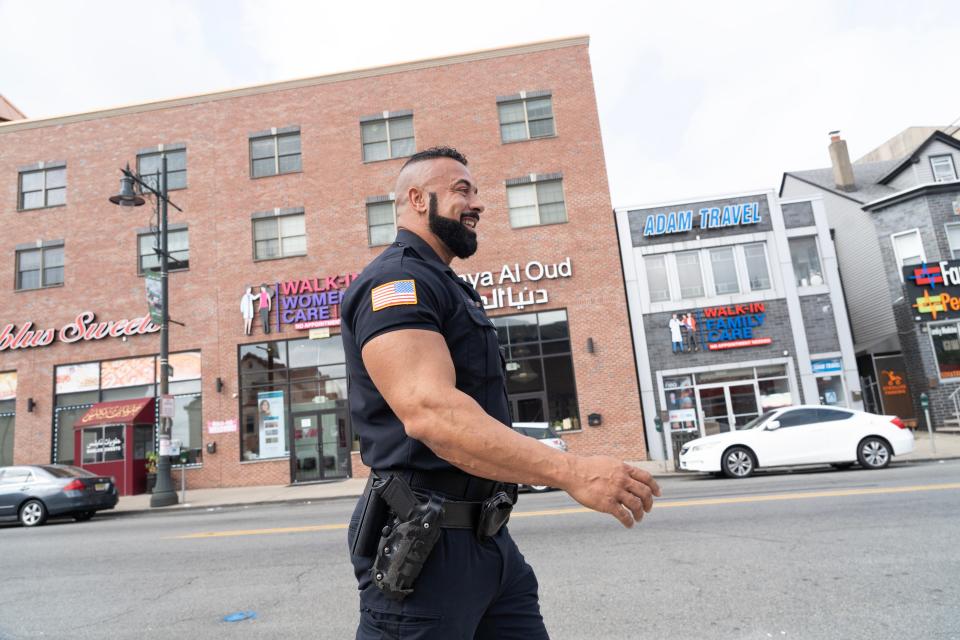
Despite these gains, Muslims remain underrepresented in law enforcement across the state. Two Muslim police associations in New Jersey are reaching out to communities, mentoring and holding career focused events, but recruiting remains a challenge.
Some Muslims feel mistrust toward police over religious and racial profiling incidents — a problem that has stymied police recruitment in communities of color across the U.S. For some immigrant families, law enforcement was seen as an arm of repressive regimes in their home country, or was not a respected field like business or medicine.
Today, attitudes are changing as more people embrace public service as a career path, including police work, said Detective Mudduser Malik of the New Jersey State Police.
“It’s evolving into something, where a few members of your community joined up and were able to share their experiences, and it’s attracting more people to this line of work,” Malik said.
In Paterson, residents see Amir on patrol, or praying at a Paterson mosque or chatting up Middle Eastern business owners. The community knows him by name.
“Now, if someone is thinking about [law enforcement] and is seeking a position, they know they have a shot," Amir said. "They know they are wanted."
'Representation is important'
New Jersey does not track the religious background of police, but Malik estimates there are about 300 Muslims in uniform. While their presence is not new, he has seen a marked rise in the past five years.
That’s especially true in municipalities like Prospect Park, Paterson, Atlantic City and Jersey City and in the Passaic County Sheriff’s Office. At least four North Jersey municipalities have had Muslim police chiefs.
Malik, who is Pakistani-American, was drawn to law enforcement as a college student working for the Rutgers Police Department. Patrolling campus, he liked that he was able to help people and that “no two days are alike.”
In 2019, Malik co-founded the New Jersey Muslim Officers Society, which he said was the second organization for Muslim police officers in the nation after New York City. The following year, the Muslim American Law Enforcement Association was founded in New Jersey. The organizations promote camaraderie, mentoring, charity and community outreach.
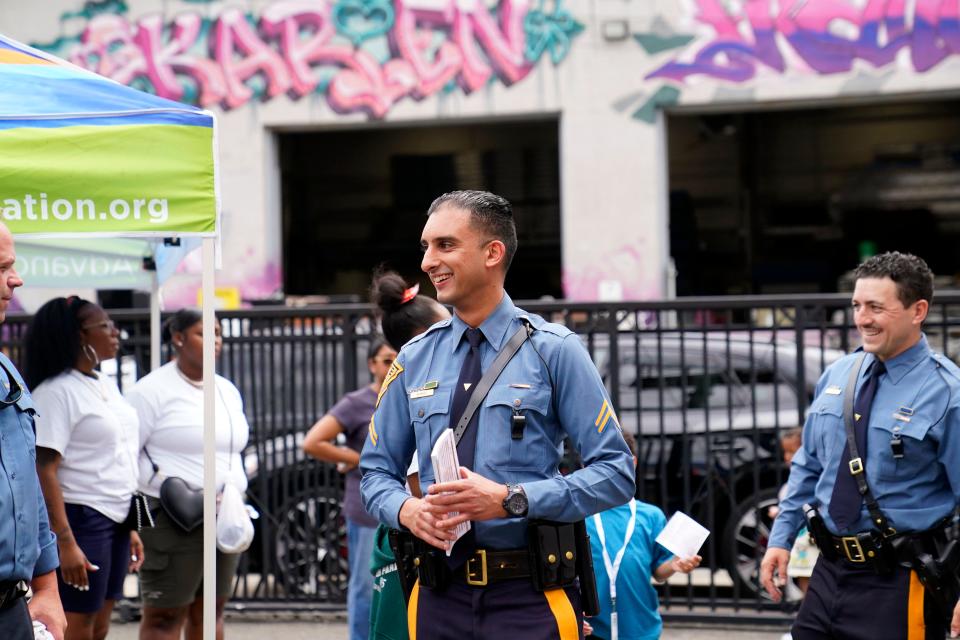
Lt. Kamil Warraich of Asbury Park police, who founded MALEA, said the group also advises members on their rights in the workplace on topics like religious accommodations for beards and hijabs. They educate law enforcement about Islam, and explain to Muslim communities about law enforcement practices, trying to bridge a gap between the two.
“Representation is important,” Warraich said. “It’s not just to have different colors and shades and religions. You are part of the community, and you represent that community, and you make sure that community is being treated fairly and justly.”
As more Muslims join police ranks, some have complained of workplace discrimination. Earlier this year, Long Hill settled a discrimination lawsuit with Ahmed Naga, New Jersey’s first Muslim police chief, for $600,000. Warraich also sued his employer, alleging he faced anti-Muslim bias and retaliation for speaking up about problems in internal affairs.
But officers say such cases are not the norm. Police learn about other cultures by working closely as teams or partners, said Malik. During the Ramadan holy month, his fellow non-Muslim state troopers joined him for suhoor, the pre-dawn meal before the daily fast, and for iftar, the fast-breaking meal after sunset. It was one example of “tolerance and comradery within the law enforcement community," he said.
At the Passaic County Sheriff’s Department, Officer Huda Shalabi is one of several New Jersey cops who wears a hijab, or Islamic headscarf. By joining the police department, Muslims get to break stereotypes and show an image to the public and to fellow officers that they may not otherwise see, said Shalabi, who is Palestinian American.
“As the first Muslim hijabi officer in my department, it was shocking to all at first,” she said. “I had a lot of coworkers curious about my hijab. They have learned and now respect what it represents, and it doesn’t make a difference.”
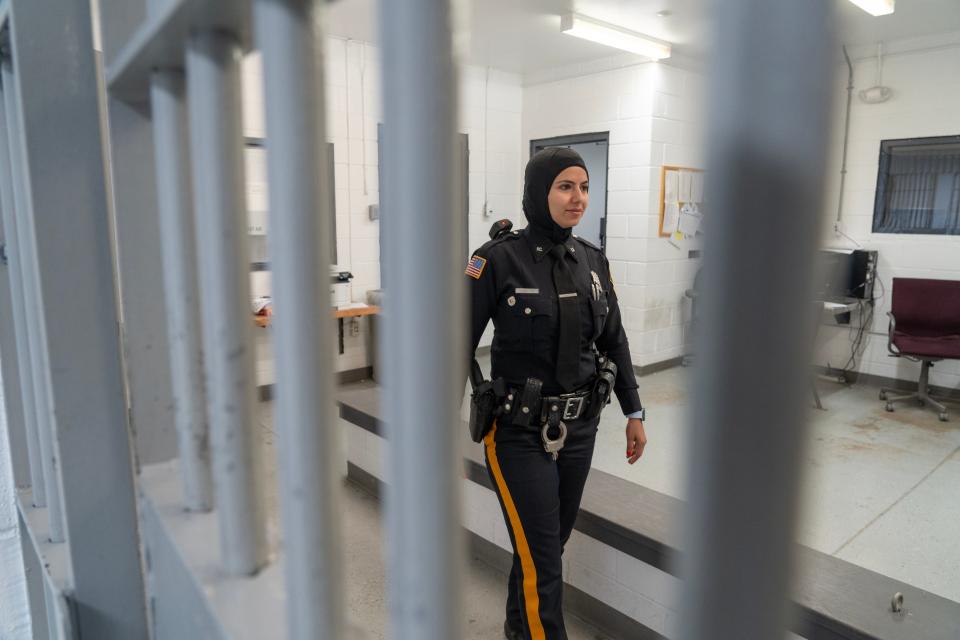
Workplace diversity contributes to better policing, Amir said. In Paterson, colleagues observe him praying or fasting and ask about his traditions, "so when that officer goes to an Arabic home and Muslim home, he will understand why we do certain things, because most likely that conversation was held at some time in the [patrol] car," he said.
Rebuilding trust in the community
At least 1,700 uniformed Muslim officers serve in the NYPD, said Adeel Rana, a deputy inspector at the NYPD and president of the NYPD Muslims Officers Society.
“I can go into any precinct and find a Muslim officer,” he said. “Before, it was a big thing.”
American cities with large Muslim populations, like Chicago; Dearborn, Michigan; Houston and Baltimore are also seeing an increase in Muslim officers. Some have reached out to Rana for advice on forming their own fraternal police organizations. He hopes to create a national organization for Muslim officers with chapters around the country.
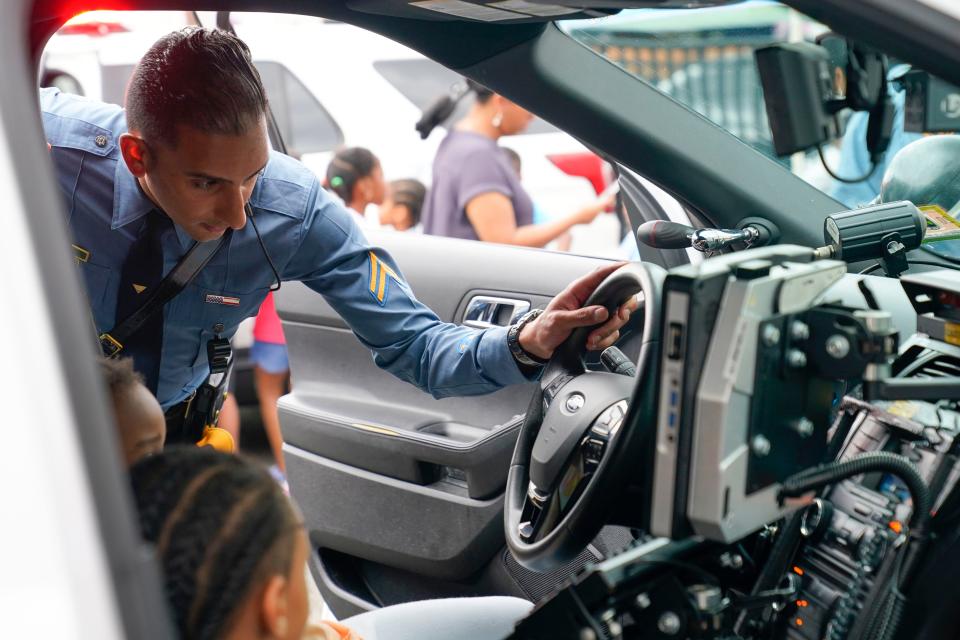
Law enforcement agencies have had a troubled history with the Muslim community post-9/11, and there's still fear and suspicion within the community over religious and racial profiling. Those concerns peaked in 2011, when news reports revealed that the New York Police Department spied on Muslims where they ate, prayed and shopped in New Jersey neighborhoods. More recently, police brutality cases in largely black communities have also hurt public confidence in police.
The presence of Muslims in policing and their work in outreach is key to rebuilding trust, Rana said.
“We have done so much work to mend those relations or those wounds with the community,” Rana said. “People in the community know they can reach out to a Muslim officer if they have a safety concern.”
Groundbreaking: She's the first judge to wear a hijab on the bench in NJ. It's not her only accomplishment
“It’s not an overnight thing. I’m not going to say it’s already complete. A wound if very hard to heal especially if you went through it yourself. But we’re doing it every day, going out there being in the community and being proactive.”
Alan Kozrosh, one of the newest members of the Prospect Park Police Department, said anti-police sentiment did not deter him from his dream. He wanted to be a cop since seeing how police helped family members who fell ill during the COVID-19 pandemic.
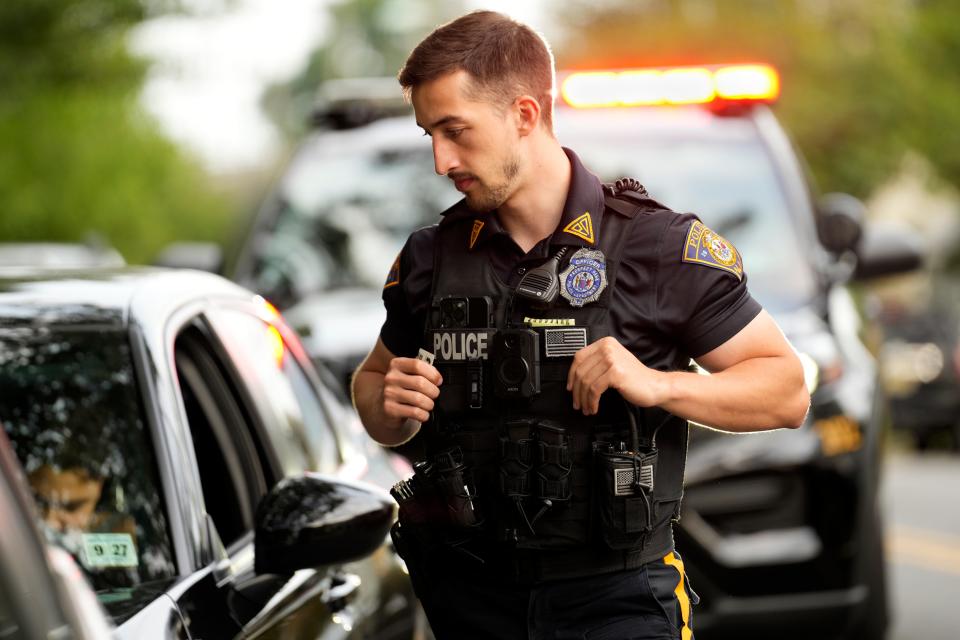
“Everyone was scared to go into households, but any time someone in my family had a medical issue, cops came in and did what they had to do,” said Kozrosh, who came to the U.S. from Syria as a child.
Now, Kozrosh is one of seven on a police force of about 25 people. He expects the number will keep growing.
"We have done events in town and out of town at a mosque,' he said. "The little kids come up to us. We speak Arabic and it is an encouragement for them. Some may say, I want to be a cop just like them."
This article originally appeared on NorthJersey.com: Muslim police officers in NJ filling ranks from rookie to chief

